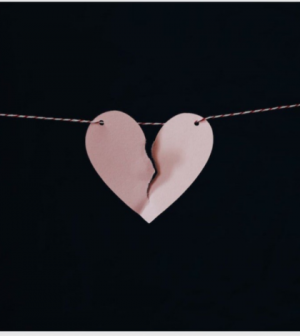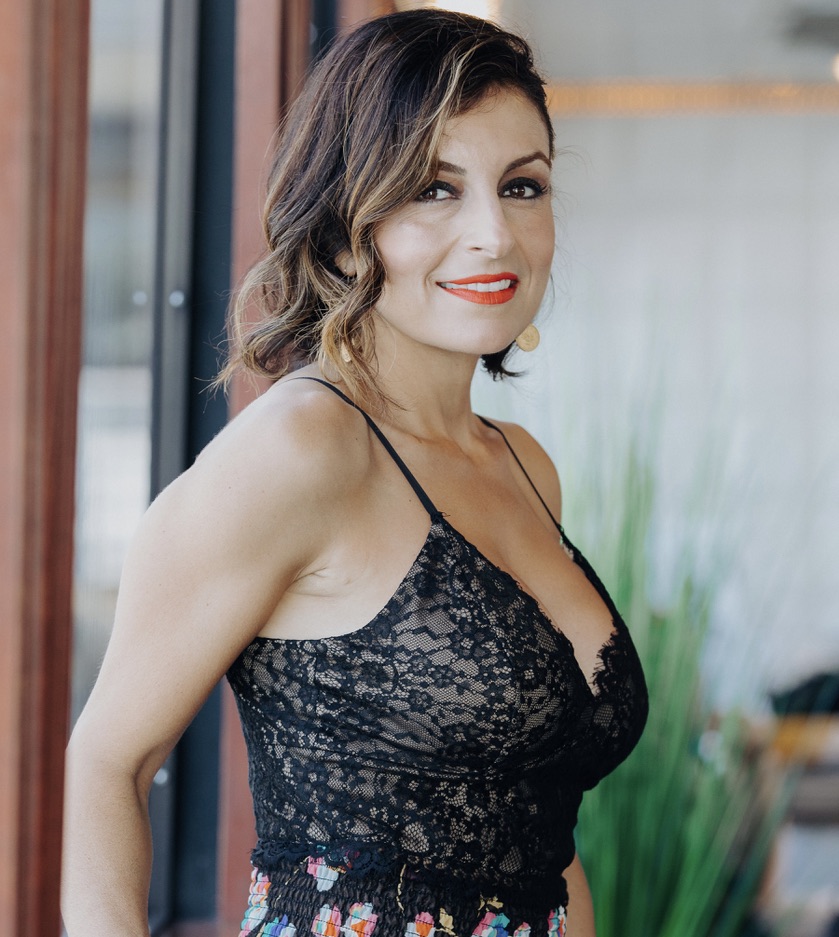- Finding Unshakable Power in a World That Wants to Pull Us ApartPosted 5 months ago
- What could a Donald Trump presidency mean for abortion rights?Posted 5 months ago
- Financial Empowerment: The Game-Changer for Women in Relationships and BeyondPosted 6 months ago
- Mental Health and Wellbeing Tips During and After PregnancyPosted 6 months ago
- Fall Renewal: Step outside your Comfort Zone & Experience Vibrant ChangePosted 6 months ago
- Women Entrepreneurs Need Support SystemsPosted 6 months ago
Unveil my Hair To Free My Broken Heart

By Pearl Mashour
It is in the middle of the night, the year 1982, as we pack up our bags, say goodbye to our dog, and give one last look at our beautiful house. We feel broken inside. At the airport, we embrace our relatives and shed tears so deep within our souls that we are not sure when we will be able to see our family again. Our life is packed into five suitcases, a stroller, and a teddy bear. At some point, my brother drops his teddy bear, which makes my parents panic to hunt the airport to find it. I am confused, I am scared, I am only six years old, and I wonder what the relevance of this old brown teddy bear is? Later, I found out that my mother had hidden and sewn gold jewelry within the teddy bear’s belly and tucked hundred dollar bills inside the poles of my brother’s stroller. This was our savings to start a new life in a new country.
As a result of the 1979 Iranian Revolution, we realized we were now refugees. The country of Iran is not the country we have loved and cherished. It was time to leave. From that moment on, we begin our lives as refugees, and no matter how hard we try, we still don’t feel complete anywhere we live.
It has been 43 years since the Iranian revolution. Recently I noticed the sorrow in all the Persian families around me. A 22-year-old girl was arrested by the Morality Police of Iran back in September of 2022 for not following the female laws and showing too much hair in public. Later on, it became public news that she was tortured to the point of death. This has caused many protests in Iran and worldwide because, finally, after all these years, Iranian females feel depleted and want fundamental human rights. Can you imagine fighting for your basic human rights in the year 2022?
As I glance at my two daughters, aged 15 and 17, I am struck by how fortunate we are. My family risked everything to give me a better opportunity, and now the torch of freedom can be passed on to many more generations. Watching my daughters style their hair, I urge them to appreciate the simple pleasures in life, like feeling the breeze blowing through their hair when they step outside. Sadly, I know many highly educated families who once enjoyed a lavish lifestyle in Iran but had to start from scratch when they fled. Even worse, some families were torn apart forever when loved ones were sent away for a better life. I have a friend who was sent to a boarding school in Europe at 12 to escape the brutality of her situation. It’s unimaginable for a young girl to be separated from her family like that, and the memory still haunts her today. Then there are people like me who have “survivor guilt” as we watch the news from the safety of our house in America as the number of deaths of the protestors increases while courageous young women continue to fight the fight for all of us. Women as young as 13 risk their lives, taking their scarves off and protesting in the streets of Iran, not knowing if they will make it home safely at night.
Consequently, this younger generation feels like they have nothing to lose anymore; they have decided to rebel and are not afraid. Without a doubt, they are looking for everyday life, a stable future, and freedom without the Islamic Republic and the Morality Police. The Morality police are different from the police. This unit is responsible for enforcing the country’s strict dress code for all females over nine years old to cover their hair in public.
These innocent & courageous teenagers are ready to die. However, the problem with this revolution is that it is a “Leaderless movement.” There is no one in charge. People are killed and arrested. Women are now begging for abortion pills because they are raped in prison. According to “their Islamic Law,” they can’t kill a virgin, so they rape them first in jail. The brutality that is going on behind closed doors is unimaginable. At the same time, this is the most significant revolution in modern history. Day after dangerous day, these brave women are ridiculing a theocracy that thinks itself is the government of God. It is ironic how Iran’s original revolution planted the seeds of its unraveling. After the Revolution of 1979, higher education skyrocketed because conservative families thought an Islamic system protected girls’ morality from exposure to Western mores. As a result, female Literacy soared from below 30% in 1976 to 80% four decades later. Most of Iran’s university students have been females for over a decade. For this reason, we are witnessing a younger generation of women who are more educated and connected to the outside world.
The protests challenge two core themes of the 1979 revolution since the hijab reflects its ideology, moral code, and refusal to comply with the westernization of the United States. First, the Revolution of 1979 was supposed to be a Democratic Revolution, but instead, it was hijacked by the Islamic Revolution. A few months later, the women of Iran lost most of their rights and were forced to wear a hijab. Five years after this revolution, it became a crime if women didn’t wear their hijab. Iranian women are restricted or need permission from their husbands or paternal guardians for most things, depriving them of their autonomy and human dignity. They are the 2nd class citizens of Iran. Child marriages between 10-14 years old continue. By law, a girl as young as 13 can marry, while girls younger can legally marry with paternal consent. Gender discrimination permeates almost all areas of law and practice. Women can’t even watch any men’s sports game in the stadium! They will be sent to jail if they publicly speak out in favor of female equal rights, and domestic violence is too familiar, as well as “acid attacks.” A married woman can’t leave Iran without her husband’s consent. This is a world is where women can’t express themselves through music, fashion, hairstyles, poetry, writing, or dance. Freedom of expression has been demolished for women in Iran. We must unveil and dispose of the discrimination among many generations of women worldwide.
After Mahsa’s death, defiant women have risen to transform the national tragedy in September and the decades of repression that led to this moment. This is a women and student movement. People who are protesting are not religious. This movement has nothing to do with religious reasons and no relation to being a Muslim. However, during this movement, we have heard a certain raw truth enunciated in protest slogans and social media commentary; the idea that liberty for all remains ambiguous unless there is liberty for women. Women, Life, Freedom is the chant you will hear echoed throughout Iran because this is the stepping stone we hope for. This slogan gives birth to the idea of women in all nations finally having an authentic voice and being free to be themselves.
All around the world, women want the same rights. The right to live a life free from violence and slavery; the right to be educated; the right to earn a fair and equal wage; the right to own property; the right to expression, and the freedom to vote. Nonetheless, females continue to have fewer opportunities for economic participation, and less political representation, are refused access to education, face more significant health and safety risks, and are confronted with violence and abuse. Nationality laws in 27 countries worldwide prevent mothers from passing their nationality to their children; over 60 countries deny women equal rights with men regarding the ability to acquire, change and retain their race. Even in America, citizens that live in states that outlaw abortion laws have fewer human rights protections than women in Saudi Arabia and Iran, which are constantly criticized for how they treat women. We must ask ourselves; Are we moving forward with equality or backward? Unfortunately, we still have a long way from accepting that empowering women fuels the economy, which spurs productivity and growth. There are other countries besides Iran where women are still facing discrimination. Pakistan, many parts of Central Africa, Syria, & Afghanistan are a few that are in the rank among the worse countries for women’s rights. None of these issues can be fixed overnight or through policy change alone.
Change and progress toward gender equality must happen at the community, family, and individual levels questioning gender norms. This way, we can see the deep connections between gender inequality, poverty, hunger, conflict, and climate change. The slogan ‘Women, Life, Freedom’ has sparked a movement in Iran to amplify women’s voices and raise global awareness of their struggles. This powerful chant should also be embraced worldwide, representing the universal quest for liberation and equality. Let us work together to free the hearts of all individuals and pave the way for a future of freedom that future generations can sustain.”
********
Pearl Mashour is an educator, Certified Life Coach, mother of three, and podcast host. Pearl received her undergraduate degree from the University of California, Irvine & her teaching credential from California State University of Northridge.
Her podcast Female Fluence is a place where women empower women to embark on a journey of true identity and inspiration to live an authentic life.
She lives in Newport Coast, California with her husband, three kids & her cavapoo.
You can connect with Pearl here:
www.femalefluence.com
LinkedIn: linkedin.com/in/femalefluence-abaa23210
Instagram @femalefluence
Email: info@femalefluence.org
Podcast: you can subscribe to Female Fluence







